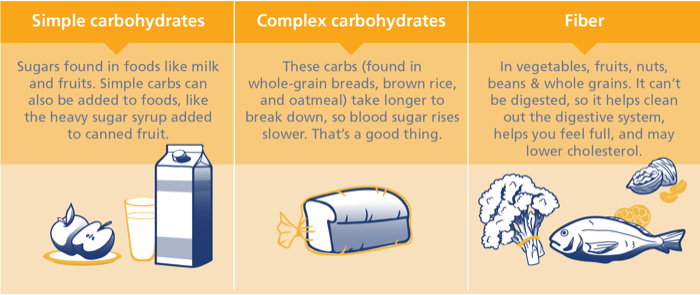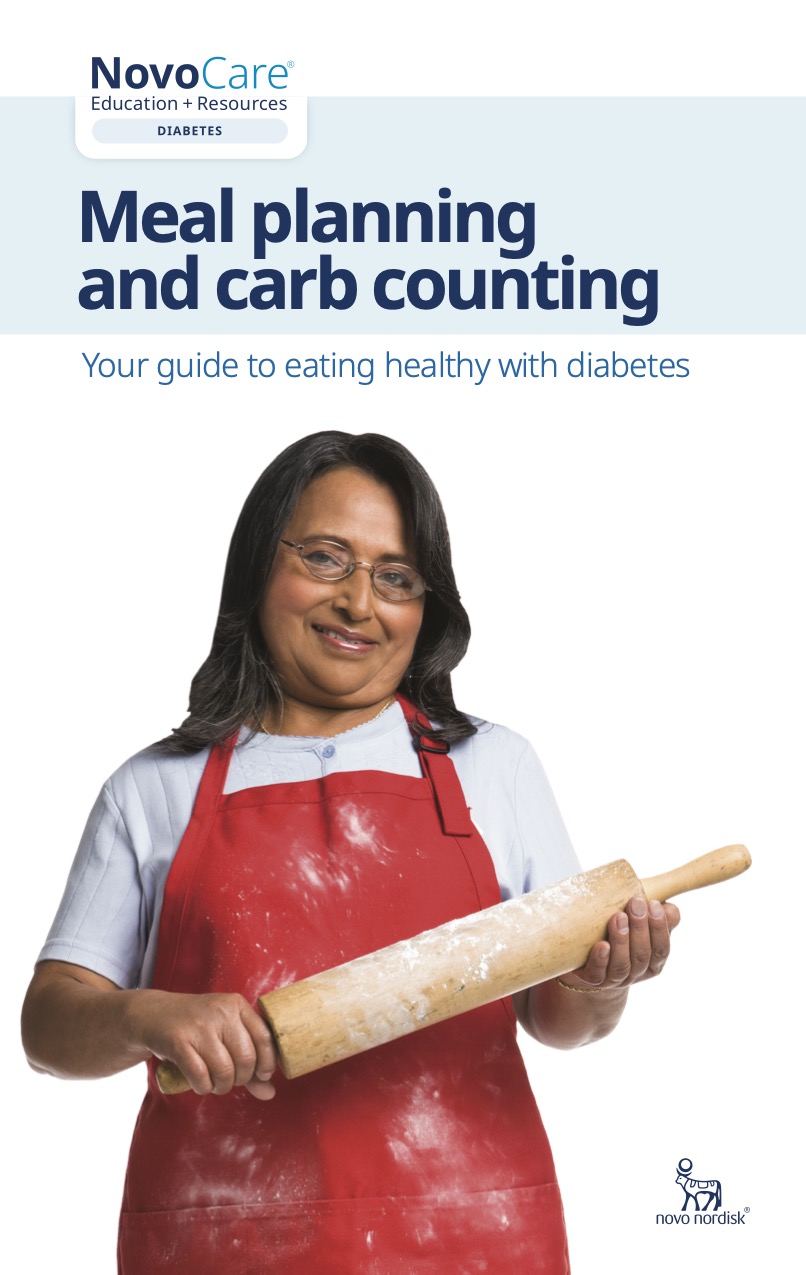
EATING
Hey sugar...
What's your story?

If you have diabetes, counting carbs can help control blood glucose. You can start today.
You may already know that carbohydratesCarbohydrateCarbohydrates are the main kinds of food that raise blood glucose levels. Your digestive system changes carbohydrates into glucose, and then uses this glucose as a source of energy for your cells.
There are 3 main types of carbohydrates in food: starches (complex carbohydrates), sugars (simple carbohydrates), and fiber. Fiber is the part of plant foods, including fruits, vegetables, and nuts, that you can’t digest. (carbs) are one of the main nutrients in food that give your body energy. Two of the others are proteins and fats. But did you know that some carbs can raise blood glucoseBlood glucoseThe main sugar found in the blood, and the body’s main source of energy. levels more than other nutrients? That’s why it’s important to be aware of how many carbs you eat.
Let’s start with the basics. There are 3 kinds of carbs:

Food that have more carbohydrates are:
- Starches like bread, cereal, crackers, grains, rice, pasta
- Starchy vegetables like potatoes, corn, peas, beans
- All fruits and fruit juices
- Milk and yogurt
- Sugary foods like candy, regular soda, jelly
- Sweets like cakes, cookies, pies, ice cream
Does that mean I have to give up carbs?
No! You still need to eat foods with carbohydrates because they provide your body with energy, along with many vitamins and minerals. High-fiber foods, particularly with soluble fiber, can help keep blood glucose in check. But keep in mind that sweets usually have lots of carbs (and calories and fat) without much nutrition. So, it’s a good idea to keep those portions small. Skipping meals isn’t a good idea either. It can lead to low blood glucose, especially if you take certain kinds of medicine.
A dietitian or diabetes educator can help you split up the amount of carbs you need between meals and snacks to help you manage blood glucose levels.
How do carbs affect insulin?
It’s important to get the balance right between carbs and insulinInsulinA hormone made by the beta cells in the pancreas that helps glucose move from the blood into the cells. Insulin is also an injectable medicine that is used to treat diabetes by controlling the level of glucose in the blood. to maintain good blood glucose control. There are 2 common ways that you can do this:
- Match carbohydrate intake to the insulin dose (fixed dose). One way to count carbohydrates is to limit the number of servings of carbohydrates you eat. This can help you reach or maintain blood glucose levels on a particular insulin dose. A dietitian can tell you how many carbohydrate servings you should eat each day. You also have to keep meal/snack times and carbohydrate counts about the same each day.
- Change the insulin dose to match carbohydrate intake. Matching the amount of fast-acting insulin (or meal time insulin) you take before eating to the amount of carbohydrates in the meal is another way to balance carbs and insulin. This can allow for more flexibility and choice at meal time. But it may take more time and effort to figure out.
Your dietitian or other health care providers can help you work out how much insulin is needed for the amount of carbohydrates eaten. This is called the insulin-to-carbohydrate ratio.
If you’re taking care of a child with diabetes, remember:
- This ratio can change with age and weight. So, it will change as your child grows
- This ratio also varies throughout the day
You may find that some types of carbohydrates cause your child’s blood glucose to rise more quickly than others. So, you may need to adjust insulin doses for different types of food.
Test your knowledge
Which carbohydrates can raise your blood glucose level?
Correct!
Sorry, that's incorrect.
Simple and complex carbs can both raise your blood glucose. That’s why it’s important to make a meal plan that keeps the amount of carbs you eat in check.



